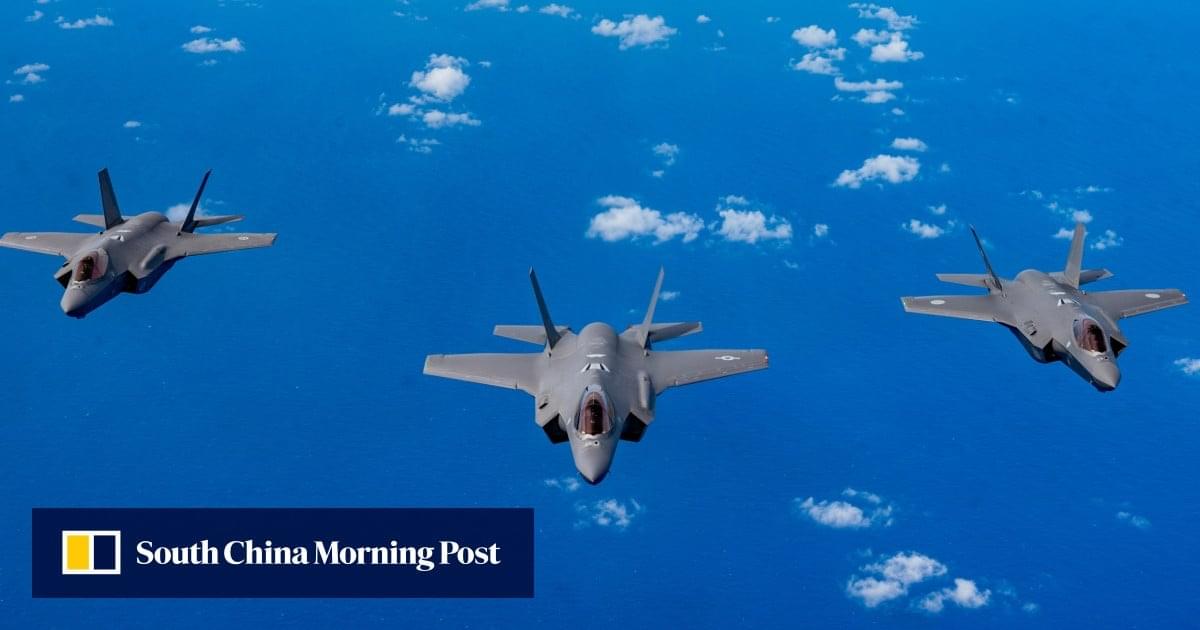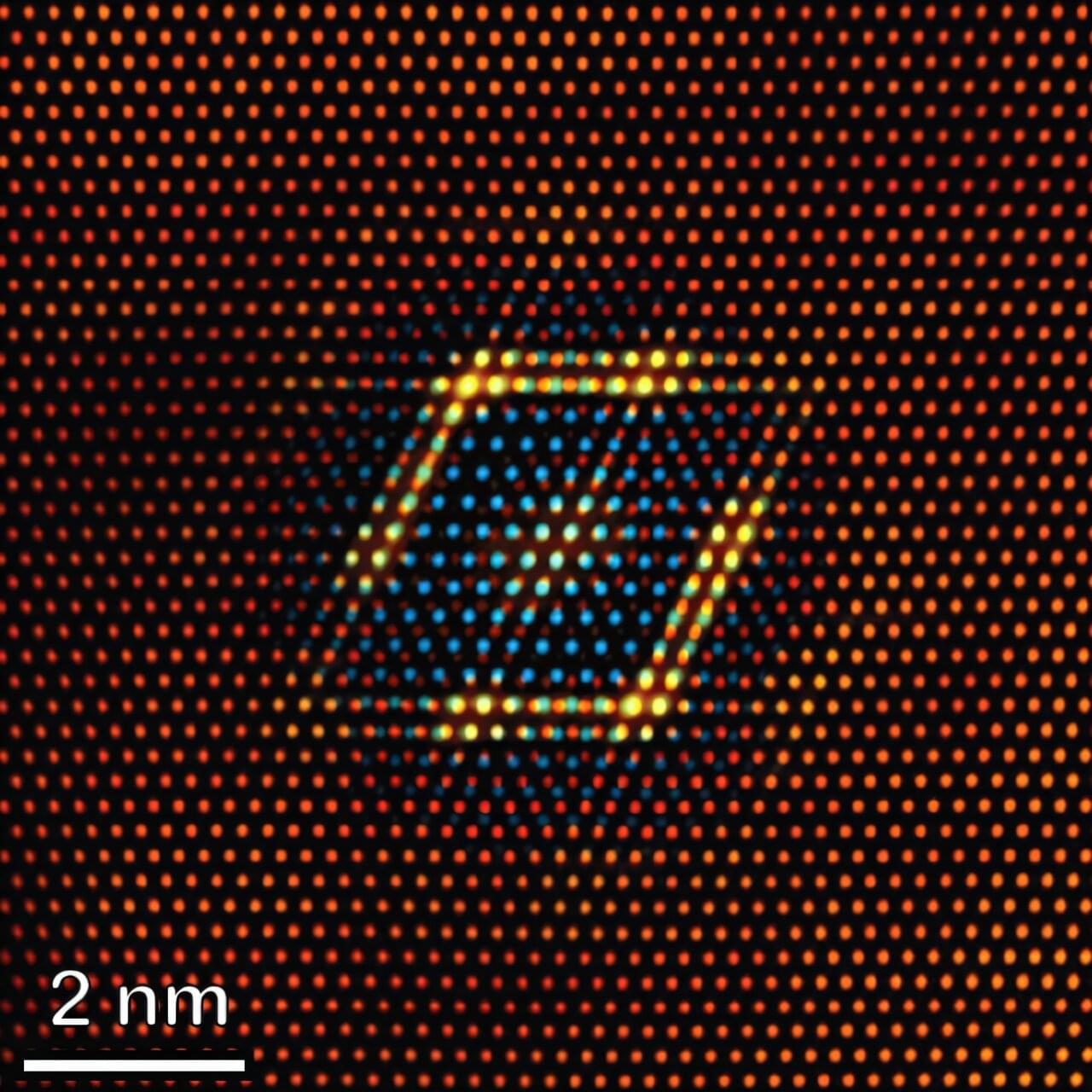The classified Kosmos satellite trio has sparked intrigue in space-tracking circles.



The frequency regime lying in the shortwave infrared (SWIR) has very unique properties that make it ideal for several applications, such as being less affected by atmospheric scattering as well as being “eye-safe.” These include Light Detection and Ranging (LIDAR), a method for determining ranges and distances using lasers, space localization and mapping, adverse weather imaging for surveillance and automotive safety, environmental monitoring, and many others.
However, SWIR light is currently confined to niche areas, like scientific instrumentation and military use, mainly because SWIR photodetectors rely on expensive and difficult-to-manufacture materials. In the past few years, colloidal quantum dots —solution-processed semiconducting nanocrystals—have emerged as an alternative for mainstream consumer electronics.
While toxic heavy-metals (like lead or mercury) have typically been used, quantum dots can also be made with environmentally friendly materials such as silver telluride (Ag2Te). In fact, silver telluride colloidal quantum dots show device performance comparable to their toxic counterparts. But they are still in their infancy, and several challenges must be addressed before they can be used in practical applications.


“No two ways about it,” Altepeter told Breaking Defense today. “The number of companies that we’re announcing is a surprise to me. I did not expect we would get this many.”
For the winning teams, the value of QBI is not just the money. Indeed, first-round grants like those being announced today have typically been under $1 million — small change not just for the Pentagon but for tech firms and venture capitalists already investing billions into quantum ventures. We suggested everybody apply for a million, [but] some people came in and said they were going to do it for less, Altepeter said.
The unique value of a QBI award is that it gives the winning companies access to a DARPA-led team of quantum experts, pulled from both US government labs, including the famous Los Alamos, and federally funded research institutions. Their job is to act as independent testers, fresh eyes, and devil’s advocates, rigorously scrutinizing each participant’s quantum strategy.
Peter H. Diamandis
🚀 Q: What key capabilities must SpaceX perfect for Earth-to-Earth transportation? A: SpaceX must master in-space engine relight, Mechazilla catch system landings, and re-entry with V2 upgrades including improved flaps and heat shields for extreme conditions.
🛬 Q: How many Starship landing pads is the US Air Force planning to build? A: The USAF plans to construct two landing pads on Johnston Island, with potential for more in the future, emphasizing goals of high launch frequencies and seamless point-to-point transport.
What if we told you AI just created the strongest light material known to humanity? This groundbreaking discovery could revolutionize everything from aerospace to everyday tech. In this video, we break down how artificial intelligence engineered this ultra-light, ultra-strong material—and why it changes the game forever.
Scientists have long searched for the perfect balance of strength and weight, and now, AI has cracked the code. Using advanced algorithms, researchers developed a material that’s lighter than carbon fiber but stronger than steel. Imagine planes, cars, and even buildings becoming more efficient and durable than ever before.
We’ll explore how this AI-designed material works, its potential real-world applications, and what it means for the future of engineering. From military tech to consumer products, this innovation could redefine entire industries. The best part? This is just the beginning of AI-driven material science breakthroughs.
How was this material invented? What makes it so strong yet so light? How will this impact future technology? Can AI design even better materials? This video answers all these questions and more. Don’t miss out on the science behind the next big leap in material engineering—watch now!
#ai.
#artificialintelligence.
#ainews.
*******************
From Star Wars dreams to battlefield reality, laser weapons are finally here—but are they worth the hype? Here’s everything you need to know about the tech, the failures, and the future.
Got a beard? Good. I’ve got something for you: http://beardblaze.com.
Simon’s Social Media:
Twitter: / simonwhistler.
Instagram: / simonwhistler.
Love content? Check out Simon’s other YouTube Channels:
Warfronts: / @warographics643
SideProjects: / @sideprojects.
Into The Shadows: / @intotheshadows.
Today I Found Out: / @todayifoundout.
Highlight History: / @highlighthistory.
Brain Blaze: / @brainblaze6526
Casual Criminalist: / @thecasualcriminalist.
Decoding the Unknown: / @decodingtheunknown2373
Places: / @places302
Celestium: / @astrographics-ve4yq

Researchers from the U.S. Army Research Laboratory (ARL) and Lehigh University have developed a nanostructured copper alloy that could redefine high-temperature materials for aerospace, defense, and industrial applications.
Their findings, published in the journal Science, introduce a Cu-Ta-Li (copper-tantalum-lithium) alloy with exceptional thermal stability and mechanical strength, making it one of the most resilient copper-based materials ever created.
“This is cutting-edge science, developing a new material that uniquely combines copper’s excellent conductivity with strength and durability on the scale of nickel-based superalloys,” said Martin Harmer, the Alcoa Foundation Professor Emeritus of Materials Science and Engineering at Lehigh University and a co-author of the study. “It provides industry and the military with the foundation to create new materials for hypersonics and high-performance turbine engines.”
Want to restore the planet’s ecosystems and see your impact in monthly videos? The first 200 people to join Planet Wild with my code SABINE23 will get the first month for free at https://planetwild.com/r/sabinehossen…
If you want to get to know them better first, check out their latest mission, where they go on to Kenya to find a more peaceful solution for the coexistence of lions and farms. https://planetwild.com/r/sabinehossen…
Last month, DARPA published a call for proposals on how to “grow” massive biological structures in space. It’s not as crazy as it sounds: The space race is heating up outside of the weird space biology sector. Some startups are building self-assembling space habitats, others are working on spaceports, and the ISS’s successor is in development. Let’s take a look.
The DARPA Call: https://sam.gov/opp/426e5868fcf74dd4a…
🤓 Check out my new quiz app ➜ http://quizwithit.com/
💌 Support me on Donorbox ➜ https://donorbox.org/swtg.
📝 Transcripts and written news on Substack ➜ https://sciencewtg.substack.com/
👉 Transcript with links to references on Patreon ➜ / sabine.
📩 Free weekly science newsletter ➜ https://sabinehossenfelder.com/newsle…
👂 Audio only podcast ➜ https://open.spotify.com/show/0MkNfXl…
🔗 Join this channel to get access to perks ➜
/ @sabinehossenfelder.
🖼️ On instagram ➜ / sciencewtg.
#science #sciencenews #space #tech